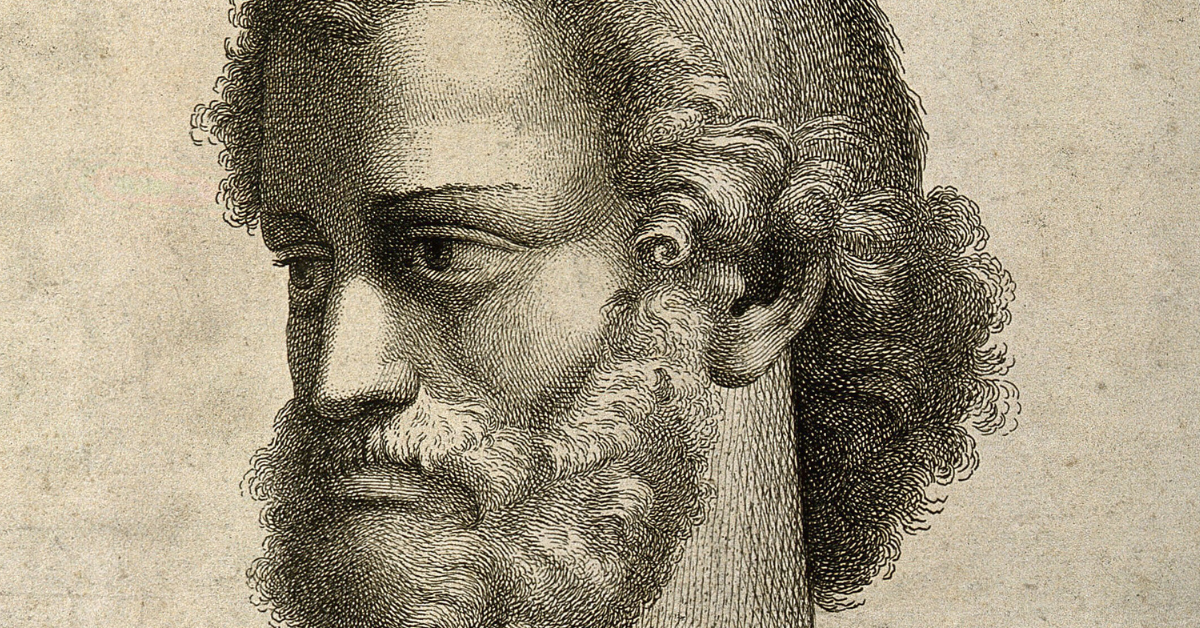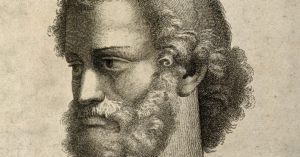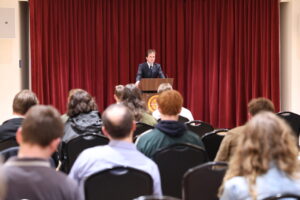

Image: Line engraving by P. Fidanza after Raphael Sanzio.
Aristotle, one of the most influential philosophers of ancient Greece, laid foundational ideas in ethics, logic, politics, and natural sciences that continue to shape our understanding of the world today. A student of Plato and tutor to Alexander the Great, Aristotle established his own school, the Lyceum, where he explored diverse topics, from biology to metaphysics. His work continues to be a source of timeless wisdom, especially in the realms of virtue, knowledge, and happiness.
In this post, we’ve compiled 25 of Aristotle’s most profound quotes, each accompanied by insights to help understand his teachings. These quotes, primarily from his works Nicomachean Ethics and Metaphysics, reveal his approach to living a fulfilled and virtuous life.
1. “We are what we repeatedly do. Excellence, then, is not an act, but a habit.”
This statement emphasises the role of habits in shaping character, suggesting that consistent virtuous actions lead to excellence, making it a part of one’s nature. Delve into Aristotle’s exploration of ethics in Nicomachean Ethics, where he elaborates on virtues, moral character, and the pursuit of a flourishing life.
2. “Happiness depends upon ourselves.”
Aristotle believed happiness (eudaimonia) is achieved through a life of virtuous actions and self-improvement, emphasising personal responsibility in attaining happiness. Learn more about Aristotle’s view of happiness as a life-long pursuit in Nicomachean Ethics.
3. “Educating the mind without educating the heart is no education at all.”
For Aristotle, true education nurtures both intellectual and moral virtues, shaping not just one’s intellect but character. Aristotle explores this balance in Politics and Nicomachean Ethics.
4. “Knowing yourself is the beginning of all wisdom.”
Self-awareness is central to Aristotle’s philosophy, as understanding one’s character is the foundation for moral development. He addresses self-knowledge as a vital aspect of the good life in Nicomachean Ethics.
5. “He who has overcome his fears will truly be free.”
Aristotle saw courage as essential to virtue, arguing that facing fears leads to freedom from emotional constraints. Explore his views on courage as a moral virtue in Nicomachean Ethics.
6. “Friendship is a single soul dwelling in two bodies.”
Aristotle regarded friendship as one of the highest goods, rooted in mutual respect and shared virtues. For his complete discourse on friendship, see Nicomachean Ethics, Book VIII.
9. “Good habits formed at youth make all the difference.”
Aristotle emphasised the importance of early moral education, believing virtues developed in youth lead to lifelong character. This is a recurring theme in Nicomachean Ethics.
7. “The aim of the wise is not to secure pleasure, but to avoid pain.”
True wisdom, Aristotle believed, involves seeking a life free from unnecessary pain rather than pursuing fleeting pleasures. His thoughts on pleasure and virtue are developed in Nicomachean Ethics.
8. “Pleasure in the job puts perfection in the work.”
Aristotle believed that engaging wholeheartedly in work leads to fulfillment and excellence. He explores the link between satisfaction and productivity in Nicomachean Ethics.
10. “It is the mark of an educated mind to be able to entertain a thought without accepting it.”
This quote reflects Aristotle’s belief in critical thinking, where considering diverse viewpoints fosters wisdom. See more in Metaphysics, where he explores open-mindedness in intellectual inquiry.
11. “Happiness is the meaning and the purpose of life, the whole aim and end of human existence.”
Aristotle identified happiness as the ultimate goal of human life, achieved through virtuous living and fulfillment of one’s potential. He elaborates on this idea in Nicomachean Ethics.
12. “In all things of nature, there is something of the marvelous.”
Aristotle’s appreciation for nature reflects his curiosity about the world and his belief in the interconnectedness of all life. Physics offers a deeper dive into his views on natural wonders.
13. “The energy of the mind is the essence of life.”
This quote underscores Aristotle’s view that intellectual vitality is central to a purposeful life. Learn more in Metaphysics, where he discusses the nature of the mind and spirit.
14. “A friend to all is a friend to none.”
Aristotle argued that true friendships require selectivity and genuine mutual appreciation. Nicomachean Ethics contains a full discussion of Aristotle’s views on different types of friendship.
15. “Whosoever is delighted in solitude is either a wild beast or a god.”
Aristotle saw humans as inherently social beings, needing community for a balanced life. His thoughts on society and solitude can be explored in Politics.
16. “The ideal man bears the accidents of life with dignity and grace.”
Aristotle admired resilience and grace under pressure, seeing it as a hallmark of virtue. Find his views on character in Nicomachean Ethics.
17. “Dignity does not consist in possessing honours, but in deserving them.”
This quote reflects Aristotle’s belief in earning respect through moral integrity. His discussions on dignity are found in Nicomachean Ethics.
18. “Wishing to be friends is quick work, but friendship is a slow ripening fruit.”
True friendship, Aristotle believed, develops gradually and requires time and trust. His exploration of friendship is detailed in Nicomachean Ethics.
19. “The whole is more than the sum of its parts.”
This statement on synergy applies to both philosophy and science. Aristotle expands on this concept in Metaphysics.
20. “Hope is a waking dream.”
Aristotle saw hope as an active pursuit, akin to a vision for the future. His reflections on hope can be found in Rhetoric.
21. “He who cannot be a good follower cannot be a good leader.”
Aristotle recognised the value of learning from others before leading. His thoughts on leadership are embedded in his works on ethics and politics.
22. “The educated differ from the uneducated as much as the living from the dead.”
Aristotle placed great value on education, seeing it as a transformative force that breathes life and understanding into individuals. His perspectives on education and its profound impact on the human soul are further explored in Politics.
23. “The high-minded man must care more for the truth than for what people think.”
Aristotle held that virtue includes a commitment to truth above public opinion, as integrity is key to character. He discusses the nature of truth and its relationship to character in Nicomachean Ethics.
24. “The law is reason, free from passion.”
Aristotle viewed law as an objective framework meant to guide society with logic rather than emotion, emphasizing justice and rationality over personal biases. He discusses the importance of law, reason, and justice in building a well-ordered society in Politics.
25. “A likely impossibility is always preferable to an unconvincing possibility.”
This quote reflects Aristotle’s approach to logic and rhetoric, highlighting that ideas should be believable and persuasive, even if they seem improbable. He addresses the value of coherence and plausibility in effective arguments in Rhetoric, a treatise on persuasive speech and writing.





